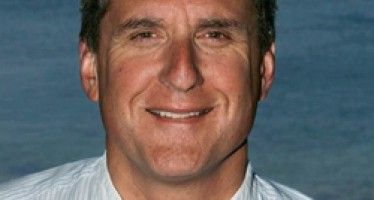Schwarzenegger still in marketing mode, selling myths
Jan. 6, 2013
By Chris Reed
 One of the staples of modern journalism is the piece in which a famous figure is asked to expound on his favorite books or music. With music, answers often seem genuinely enthusiastic. With books, however, the answers inevitably are designed to reflect well on the speaker.
One of the staples of modern journalism is the piece in which a famous figure is asked to expound on his favorite books or music. With music, answers often seem genuinely enthusiastic. With books, however, the answers inevitably are designed to reflect well on the speaker.
A classic and pathetically revealing example of this – one that should give discerning Californians a good chortle – appeared in The New York Times book review section last Sunday. The Times asked Arnold Schwarzenegger, among other things, which fictional character he most wished he could portray on the big screen. Arnold’s response:
One of my favorite characters in history is Cincinnatus, and I’ve read everything I can find about him. I would love to play him in a film about ancient Rome. He was given the keys to the kingdom — pure, absolute power! — and he did the job and then went back to his farm. He didn’t get drunk on the power. He did the job he was asked to do, dealt with the invasion and walked away. That is the purest form of public service I can imagine, and it would be fun to try to capture that character on film.
Groan. Plainly, Arnold is suggesting that his political odyssey was the modern version of Cincinnatus’ journey — the noble leader who saves the day and then goes back to the “farm.”
The reformer is defeated — and gives up
From taking office in 2003 until the November 2005 special election, in which his package of reforms was rejected by state voters influenced by a gigantic CTA-funded ad campaign, Arnold was the real deal. But afterwards, his overwhelming focus was on crafting the narrative about his public service for the history books for after he went back to acting. His emphasis was on marketing. He lost his appetite for taking on union hegemony.
And so in 2006, first he crafted the “postpartisan” narrative that held that he alone had divined how to govern a bitterly divided state government — manure eagerly spread by the national media, which failed to notice that a revenue surge made it easy to craft a 2006 state budget and that it was by compromising (giving in) on four Democratic initiatives that Arnold won some biggest headlines.
Next Arnold appropriated one of those initiatives as his own: AB 32, which forced a shift to cleaner but costlier energy to reduce the emissions which contribute to global warming. The Arnold who initially fought for an escape hatch in AB 32 in case it harmed the economy by adding unique energy costs not borne by rival states and nations turned into the sort of raving green who likes to pretend that making energy cost more is a miracle job-creation tool. His administration would occasionally give signs it knew this was manure. But the California media, at its all-time worst, for the most part collectively bought the bizarre idea that adding unique costs to California’s private sector was inherently pro-business.
Arnold wanted to be Al Gore 2, a Global Green Giant revered by enviros around the world. It worked.
The crusade for Schwarzeneggercare
But what’s been largely forgotten is that Arnold also set out to burnish his reputation by introducing his version of Obamacare, a 14-month crusade that began after his November 2006 re-election. Arnold’s version had the same immense basic flaw as Obama’s: It created a disincentive for businesses to provide health insurance to their employees because it was much cheaper to pay a fine to the state and have the state provide the coverage.
But Arnold didn’t care. He was playing for the history books. He was a healthcare visionary, too, not just a green one. The Assembly passed a revised version of his plan. Thankfully, in January 2008, a California Senate committee killed it because of its heavy cost. (No one has ever looked at this angle, but the defeat sure looked like a CTA hit; can’t have another big mouth to feed in Sacramento, you see!)
When Barack Obama got elected and pursued his very similar agenda, we saw the reverse. The greens made little headway with cap-and-trade/renewable energy mandates because Democratic lawmakers in inland states figured out what California media geniuses could not: that it was risky to saddle our economy with unique costs not borne by our rivals. But the health reformers/big government enthusiasts got their way and Obamacare was enacted.
So in California, we have the worst of all possible worlds: a coming huge unique spike in energy costs and a coming transition to Obamacare in the state that has the nation’s oldest family-care practitioners. Rationed care, here we come.
But none of this matters to Arnold. Ever since early on the evening of Nov. 8, 2005, when initial results showed his anti-union ballot initiatives headed for defeat, his focus as governor was primarily on securing a seemingly lofty place in history — or at least the shallow version offered by our media.
He won. We lost.
Related Articles
I'm Not Flying!
John Seiler: Fortunately, California is such a beautiful state that there’s no reason to leave anyway, except to get a
Firearm association accuses Fish and Game commissioner of conflict of interest
One of the most controversial bills passed this year by the California Legislature was Assembly Bill 711, by Assemblyman Anthony
What is CBD? The A-Z Guide of Hemp-Based Products
Sponsored by Real Tested CBD. This article was originally published on Real Tested CBD. To view the original article, click




